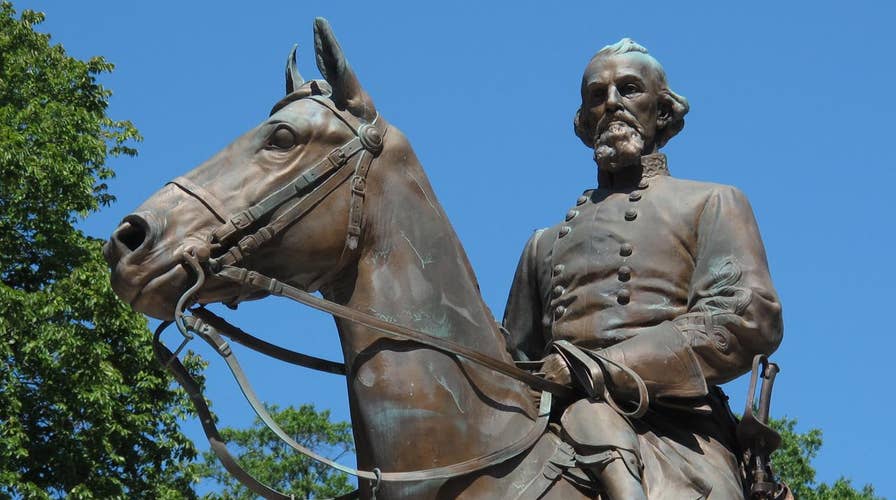The conversation happening in our nation in light of recent events is more about political correctness than the issue at hand. Neo-Nazis, white supremacists, and terrorists are bad people. The ideals of these groups are in opposition to everything our nation stands for and everything that holds true to our founding principles. Their hatred of people dissimilar to them is un-American and it should not be tolerated under any circumstances.
Days ago, my colleague in the Senate, Senator Cory Booker of New Jersey, announced that he plans to introduce legislation that would remove all of the statues in the U.S. Capitol that honored Confederate soldiers. House Minority Leader Nancy Pelosi has also called for the elimination of such statues. I respect their rights as elected officials to put forth legislation they believe is in the best interest of their constituents, however I simply do not agree.
As a Cherokee, I can attest to the fact that Native Americans have been on the losing side of history. Our rights have been infringed upon, our treaties have been broken, our culture has been stolen, and our tribes have been decimated at the hands of our own United States government. Native Americans have faced centuries of atrocities to their people, their land, and their culture – all under various presidents who took an oath of office to preserve, protect, and defend the Constitution of the United States.
When we censor our history by disguising our scars, we belittle the struggles our ancestors fought so hard to overcome. America doesn't cower behind political correctness. It defiantly and courageously moves forward, with its history as a reminder of where we have been.
Under President Andrew Jackson in 1830, our government passed the Indian Removal Act that drove thousands of Native Americans out of their homes on the treacherous journey better known as the Trail of Tears. Under President Franklin Pierce in 1854, parts of Indian Territory were stolen from tribes to create the Kansas and Nebraska Territories. Under President Abraham Lincoln, the Sand Creek massacre occurred in 1864 when the U.S. Army attacked the Cheyenne and Arapaho tribes unprovoked, killing about 250 Native Americans. The Dawes Act of 1887 gave President Grover Cleveland the power to take back tribal land and redistribute the land to native people as individuals, not as tribal members. Under President Benjamin Harrison in 1890, the Wounded Knee massacre took the lives of 150 Native Americans. Under President Theodore Roosevelt in 1907, Indian and Oklahoma territories were unified to create the state of Oklahoma after Congress refused to consider a petition to make Indian Territory a separate state. President Roosevelt is even quoted as saying: “I don’t go so far as to think that the only good Indians are the dead Indians, but I believe nine out of every 10 are.”
Let me ask you this: Is history not an opportunity to learn from one’s mistakes? When we fall short of the high standard we set for our nation and its citizens, we make mistakes. What's most important is that our nation remembers and learns from them. As soon as we forget about our history, we are bound to repeat the same errors.
Still, we have professional athletes like Colin Kaepernick who refuse to stand during the national anthem and others who stand in solidarity with him in protest of the United States. To what end? To protest this country, a country that I love and my friends have died to defend? As an American, you have the right to protest me, or another individual, or a group, but I believe that protesting the United States for the mistakes it has made – when it gave you the freedom to do so in the first place – is disrespectful. Any attempt to coerce the United States into erasing our history is disingenuous. Especially, when our country has learned from the mistakes it has made and is determined not to repeat them.
Should we erase our history in the name of being politically correct? Can we not all agree that it is what shaped our country to be the great nation it is today? One that we know to be full of freedoms, liberties, and rights that other nations only dream of?
The removal of Confederate statues in the U.S. Capitol doesn’t change our history. The removal of these statues merely attempts to disguise our ugly scars by hiding these statues out of plain sight. In an imperfect world, full of imperfect leaders, there are countless statues that may not live up to our American values. The statues of President Jackson and President Lincoln, both fervent oppressors of Native Americans, stand tall in the rotunda of the U.S. Capitol. Still, these statues tell the history of the good and the bad of our nation.
America is – and will always be – a success story. We have African Americans, Native Americans, Hispanics, and members of other ethnic groups elected to positions inside our governments. The American free enterprise system is the greatest tool to lift people out of poverty ever created in human history and when applied properly, does not discriminate by race, religion, or skin color. When we censor our history by disguising our scars, we belittle this process and the struggles our ancestors fought so hard to overcome. America doesn't cower behind political correctness. It defiantly and courageously moves forward, with its history as a reminder of where we have been. Let us look boldly into our history and learn the lessons that made us the “shining city on the hill” and the example for all other peoples.
Republican Markwayne Mullin represents Oklahoma’s 2nd congressional district.





















